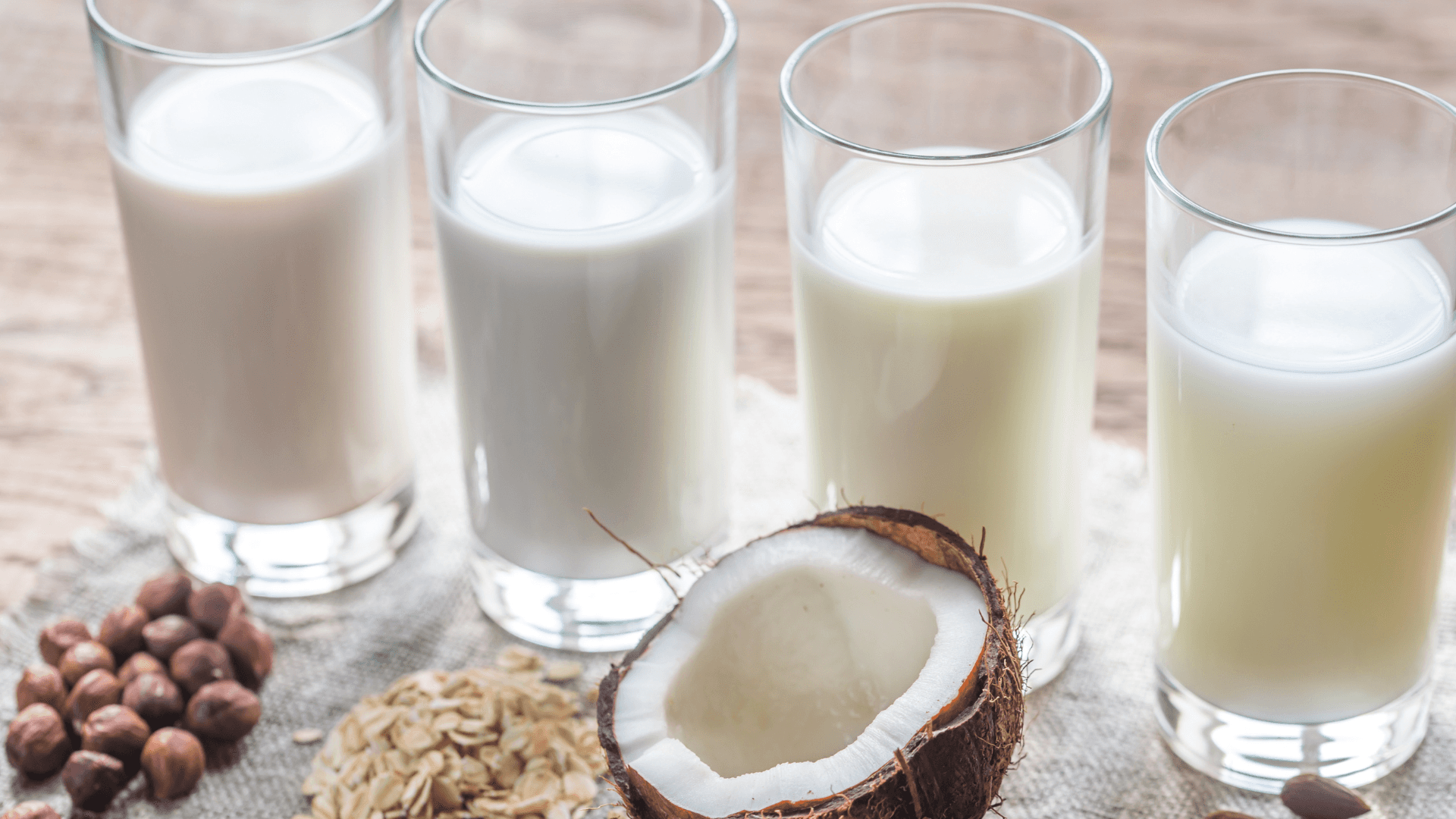The Dangers of Frequent Laxative Use: What You Need to Know
The Dangers of Frequent Laxative Use: What You Need to Know
The Dangers of Frequent Laxative Use: What You Need to Know
Mar 25, 2024
Mar 25, 2024
Mar 25, 2024

Understand the risks of excessive laxative use and discover safer alternatives to promote balanced and sustainable intestinal health.
Understand the risks of excessive laxative use and discover safer alternatives to promote balanced and sustainable intestinal health.
Understand the risks of excessive laxative use and discover safer alternatives to promote balanced and sustainable intestinal health.
While laxatives are typical options to relieve constipation, their frequent use can lead to serious health complications. This article aims to clarify the risks of continuous laxative use and suggest safer, more natural ways to maintain digestive well-being.
How Laxatives Work and When They Are Recommended
Laxatives are classified into several categories, each with a distinct mechanism of action. Osmotic laxatives, such as polyethylene glycol and lactulose, draw water into the intestines, facilitating stool transit and elimination. Stimulant laxatives, such as bisacodyl and senna, induce the intestines to contract more frequently, speeding up bowel movements. Lastly, emollient laxatives, such as mineral oil, soften the stools, making them easier to pass.
Although laxatives offer symptomatic relief in specific situations, their indiscriminate use can lead to several negative consequences. The primary one is the loss of the organ's ability to function without the artificial stimulation of medications. This dependence can lead to various side effects, such as dysregulation of intestinal transit, nutrient loss, dehydration, and electrolyte imbalance.
Laxative Dependence: When the Remedy Becomes a Problem
Laxative dependence often results from prolonged and unsupervised use of these medications. Initially, the relief from constipation seems like the solution, but over time, it's as if the intestines "forget" how to work by themselves. The intestinal muscles weaken, and the nerves responsible for intestinal motility become less sensitive, making natural evacuation difficult.
Treating laxative dependence involves a multifaceted approach. The first step, under medical guidance, is the gradual discontinuation of laxatives to avoid withdrawal symptoms, such as intense constipation and abdominal discomfort. Concurrently, lifestyle and dietary changes are crucial for treatment success, as a diet rich in fibers contributes to forming softer stools and facilitating evacuation.
Adequate fluid intake and regular physical exercise also help the intestines function properly. In some cases, bulk-forming laxatives may be used temporarily, as these are milder (usually composed of fibers or gelatinous substances) and assist in increasing the volume of fecal matter to facilitate its passage through the intestines.
The Impact of Laxatives on Nutrient Absorption
Excessive use of laxatives, especially emollient and stimulant types, can significantly impair the absorption of essential nutrients. By accelerating intestinal transit, these laxatives reduce the time the intestines can absorb vitamins, minerals, and other nutrients from food. That, in turn, leads to developing deficiencies in vitamins, minerals, and electrolytes.
While highly effective, emollient laxatives generally work to resolve short-term constipation. With prolonged use, the mineral oil in these laxatives can interfere with the absorption of fat-soluble vitamins such as vitamins A, D, E, and K, as well as impair the complete absorption of certain medications by the body.
In the case of stimulant laxatives, it is common for some people to experience pain and abdominal cramps, as well as temporary symptoms of fecal incontinence after use. There are also reports of more severe side effects, such as allergic reactions, electrolyte imbalances, and liver damage.
Natural Alternatives and Lifestyle Adjustments for a Healthy Gut
Beyond these fundamental practices for maintaining intestinal health, other natural alternatives and lifestyle adjustments can be beneficial. Including foods rich in probiotics, such as yogurt, kefir, and kombucha, in your daily diet can help balance the gut flora, promoting more efficient digestion and preventing constipation. Probiotics introduce beneficial bacteria into the digestive tract, which are crucial for healthy intestinal function.
Managing stress is another crucial component of digestive health. Stress can negatively impact intestinal motility and exacerbate constipation. Relaxation techniques, such as meditation, yoga, and deep breathing, can aid in reducing stress and promoting regular intestinal function.
Besides, utilizing herbs and supplements can be explored, but always with caution and under the guidance of a healthcare professional. Herbs like psyllium, a soluble fiber, can help increase stool bulk and facilitate passage, while ginger and peppermint are known for their digestive properties that can help reduce abdominal discomfort.
__
Although laxatives can offer temporary constipation relief, they should not used without medical recommendations. Prioritizing natural methods and making lifestyle adjustments is the best strategy to maintain digestive health and bypass the risks associated with the frequent use of laxatives. We strongly encourage you to consult healthcare professionals for appropriate and personalized treatment of constipation.
While laxatives are typical options to relieve constipation, their frequent use can lead to serious health complications. This article aims to clarify the risks of continuous laxative use and suggest safer, more natural ways to maintain digestive well-being.
How Laxatives Work and When They Are Recommended
Laxatives are classified into several categories, each with a distinct mechanism of action. Osmotic laxatives, such as polyethylene glycol and lactulose, draw water into the intestines, facilitating stool transit and elimination. Stimulant laxatives, such as bisacodyl and senna, induce the intestines to contract more frequently, speeding up bowel movements. Lastly, emollient laxatives, such as mineral oil, soften the stools, making them easier to pass.
Although laxatives offer symptomatic relief in specific situations, their indiscriminate use can lead to several negative consequences. The primary one is the loss of the organ's ability to function without the artificial stimulation of medications. This dependence can lead to various side effects, such as dysregulation of intestinal transit, nutrient loss, dehydration, and electrolyte imbalance.
Laxative Dependence: When the Remedy Becomes a Problem
Laxative dependence often results from prolonged and unsupervised use of these medications. Initially, the relief from constipation seems like the solution, but over time, it's as if the intestines "forget" how to work by themselves. The intestinal muscles weaken, and the nerves responsible for intestinal motility become less sensitive, making natural evacuation difficult.
Treating laxative dependence involves a multifaceted approach. The first step, under medical guidance, is the gradual discontinuation of laxatives to avoid withdrawal symptoms, such as intense constipation and abdominal discomfort. Concurrently, lifestyle and dietary changes are crucial for treatment success, as a diet rich in fibers contributes to forming softer stools and facilitating evacuation.
Adequate fluid intake and regular physical exercise also help the intestines function properly. In some cases, bulk-forming laxatives may be used temporarily, as these are milder (usually composed of fibers or gelatinous substances) and assist in increasing the volume of fecal matter to facilitate its passage through the intestines.
The Impact of Laxatives on Nutrient Absorption
Excessive use of laxatives, especially emollient and stimulant types, can significantly impair the absorption of essential nutrients. By accelerating intestinal transit, these laxatives reduce the time the intestines can absorb vitamins, minerals, and other nutrients from food. That, in turn, leads to developing deficiencies in vitamins, minerals, and electrolytes.
While highly effective, emollient laxatives generally work to resolve short-term constipation. With prolonged use, the mineral oil in these laxatives can interfere with the absorption of fat-soluble vitamins such as vitamins A, D, E, and K, as well as impair the complete absorption of certain medications by the body.
In the case of stimulant laxatives, it is common for some people to experience pain and abdominal cramps, as well as temporary symptoms of fecal incontinence after use. There are also reports of more severe side effects, such as allergic reactions, electrolyte imbalances, and liver damage.
Natural Alternatives and Lifestyle Adjustments for a Healthy Gut
Beyond these fundamental practices for maintaining intestinal health, other natural alternatives and lifestyle adjustments can be beneficial. Including foods rich in probiotics, such as yogurt, kefir, and kombucha, in your daily diet can help balance the gut flora, promoting more efficient digestion and preventing constipation. Probiotics introduce beneficial bacteria into the digestive tract, which are crucial for healthy intestinal function.
Managing stress is another crucial component of digestive health. Stress can negatively impact intestinal motility and exacerbate constipation. Relaxation techniques, such as meditation, yoga, and deep breathing, can aid in reducing stress and promoting regular intestinal function.
Besides, utilizing herbs and supplements can be explored, but always with caution and under the guidance of a healthcare professional. Herbs like psyllium, a soluble fiber, can help increase stool bulk and facilitate passage, while ginger and peppermint are known for their digestive properties that can help reduce abdominal discomfort.
__
Although laxatives can offer temporary constipation relief, they should not used without medical recommendations. Prioritizing natural methods and making lifestyle adjustments is the best strategy to maintain digestive health and bypass the risks associated with the frequent use of laxatives. We strongly encourage you to consult healthcare professionals for appropriate and personalized treatment of constipation.
While laxatives are typical options to relieve constipation, their frequent use can lead to serious health complications. This article aims to clarify the risks of continuous laxative use and suggest safer, more natural ways to maintain digestive well-being.
How Laxatives Work and When They Are Recommended
Laxatives are classified into several categories, each with a distinct mechanism of action. Osmotic laxatives, such as polyethylene glycol and lactulose, draw water into the intestines, facilitating stool transit and elimination. Stimulant laxatives, such as bisacodyl and senna, induce the intestines to contract more frequently, speeding up bowel movements. Lastly, emollient laxatives, such as mineral oil, soften the stools, making them easier to pass.
Although laxatives offer symptomatic relief in specific situations, their indiscriminate use can lead to several negative consequences. The primary one is the loss of the organ's ability to function without the artificial stimulation of medications. This dependence can lead to various side effects, such as dysregulation of intestinal transit, nutrient loss, dehydration, and electrolyte imbalance.
Laxative Dependence: When the Remedy Becomes a Problem
Laxative dependence often results from prolonged and unsupervised use of these medications. Initially, the relief from constipation seems like the solution, but over time, it's as if the intestines "forget" how to work by themselves. The intestinal muscles weaken, and the nerves responsible for intestinal motility become less sensitive, making natural evacuation difficult.
Treating laxative dependence involves a multifaceted approach. The first step, under medical guidance, is the gradual discontinuation of laxatives to avoid withdrawal symptoms, such as intense constipation and abdominal discomfort. Concurrently, lifestyle and dietary changes are crucial for treatment success, as a diet rich in fibers contributes to forming softer stools and facilitating evacuation.
Adequate fluid intake and regular physical exercise also help the intestines function properly. In some cases, bulk-forming laxatives may be used temporarily, as these are milder (usually composed of fibers or gelatinous substances) and assist in increasing the volume of fecal matter to facilitate its passage through the intestines.
The Impact of Laxatives on Nutrient Absorption
Excessive use of laxatives, especially emollient and stimulant types, can significantly impair the absorption of essential nutrients. By accelerating intestinal transit, these laxatives reduce the time the intestines can absorb vitamins, minerals, and other nutrients from food. That, in turn, leads to developing deficiencies in vitamins, minerals, and electrolytes.
While highly effective, emollient laxatives generally work to resolve short-term constipation. With prolonged use, the mineral oil in these laxatives can interfere with the absorption of fat-soluble vitamins such as vitamins A, D, E, and K, as well as impair the complete absorption of certain medications by the body.
In the case of stimulant laxatives, it is common for some people to experience pain and abdominal cramps, as well as temporary symptoms of fecal incontinence after use. There are also reports of more severe side effects, such as allergic reactions, electrolyte imbalances, and liver damage.
Natural Alternatives and Lifestyle Adjustments for a Healthy Gut
Beyond these fundamental practices for maintaining intestinal health, other natural alternatives and lifestyle adjustments can be beneficial. Including foods rich in probiotics, such as yogurt, kefir, and kombucha, in your daily diet can help balance the gut flora, promoting more efficient digestion and preventing constipation. Probiotics introduce beneficial bacteria into the digestive tract, which are crucial for healthy intestinal function.
Managing stress is another crucial component of digestive health. Stress can negatively impact intestinal motility and exacerbate constipation. Relaxation techniques, such as meditation, yoga, and deep breathing, can aid in reducing stress and promoting regular intestinal function.
Besides, utilizing herbs and supplements can be explored, but always with caution and under the guidance of a healthcare professional. Herbs like psyllium, a soluble fiber, can help increase stool bulk and facilitate passage, while ginger and peppermint are known for their digestive properties that can help reduce abdominal discomfort.
__
Although laxatives can offer temporary constipation relief, they should not used without medical recommendations. Prioritizing natural methods and making lifestyle adjustments is the best strategy to maintain digestive health and bypass the risks associated with the frequent use of laxatives. We strongly encourage you to consult healthcare professionals for appropriate and personalized treatment of constipation.
Compartir en:
Compartir en:

Civilizaciones perdidas: Misterios del pasado
Jan 31, 2025

Historias ocultas de los monumentos más famosos del mundo
Jan 15, 2024

Exploración espacial y su impacto en la salud humana
Dec 2, 2024

El impacto de las redes sociales en las tradiciones de Año Nuevo
Nov 28, 2024

Año Nuevo: Costumbres, reflexiones y caminos hacia una celebración sostenible
Nov 28, 2024

Astronomía y Navidad: Desvelando la estrella de Belén y los fenómenos celestes
Nov 27, 2028

Sabores y tradiciones de la Navidad mundial
Nov 27, 2024

Mindful eating: Transforma tu relación con la comida a través de la alimentación consciente
Apr 15, 2024

Aguacate: Una fruta repleta de beneficios para tu salud
Apr 11, 2024

Explorando los diferentes tipos de leche
Apr 8, 2024

Té verde: Una fuente natural de salud y vitalidad
Apr 5, 2024

Superalimentos: Descubre el poder nutricional y los beneficios para la salud
Apr 3, 2024

Alimentos anticancerígenos: Descubre cómo reducir el riesgo de cáncer a través de la dieta
Mar 29, 2024

Los efectos del azúcar en el cuerpo
Mar 27, 2024

Los peligros del uso frecuente de laxantes: Lo que debes saber
Mar 25, 2024
Ver También
Ver También
Ver También
Ver También

Civilizaciones perdidas: Misterios del pasado
Jan 31, 2025

Historias ocultas de los monumentos más famosos del mundo
Jan 15, 2024

Exploración espacial y su impacto en la salud humana
Dec 2, 2024

El impacto de las redes sociales en las tradiciones de Año Nuevo
Nov 28, 2024

Año Nuevo: Costumbres, reflexiones y caminos hacia una celebración sostenible
Nov 28, 2024

Astronomía y Navidad: Desvelando la estrella de Belén y los fenómenos celestes
Nov 27, 2028

Sabores y tradiciones de la Navidad mundial
Nov 27, 2024

Mindful eating: Transforma tu relación con la comida a través de la alimentación consciente
Apr 15, 2024

Aguacate: Una fruta repleta de beneficios para tu salud
Apr 11, 2024

Explorando los diferentes tipos de leche
Apr 8, 2024

Té verde: Una fuente natural de salud y vitalidad
Apr 5, 2024

Superalimentos: Descubre el poder nutricional y los beneficios para la salud
Apr 3, 2024

Alimentos anticancerígenos: Descubre cómo reducir el riesgo de cáncer a través de la dieta
Mar 29, 2024

Los efectos del azúcar en el cuerpo
Mar 27, 2024

Los peligros del uso frecuente de laxantes: Lo que debes saber
Mar 25, 2024

